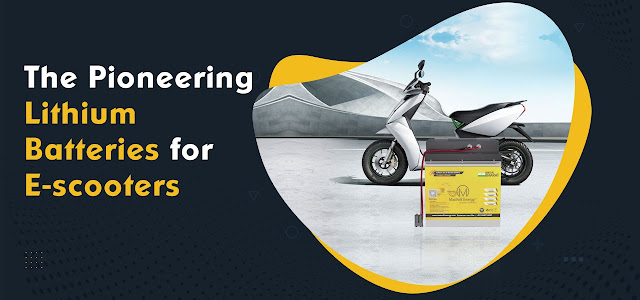Lithium or Lead Acid: Which Is a Superior Battery for Rechargeable Vehicles?
If you're looking for a good battery for your vehicle, you will undoubtedly have a list of conditions in mind. It is common for lithium-ion battery manufacturers to be asked about technologies that promote rechargeable batteries. One frequently asked question is, "What is the difference between lead-acid and lithium-ion batteries, and when should each be used?"
Maxvolt Energy is concerned about the environmental impact of the manufacturing procedures of these batteries. That is why we adhere to the best practices for reducing pollution and waste.
The following answers will help you decide between lithium-ion batteries and lead-acid batteries.
Do lithium-ion batteries outlast lead-acid batteries?
All batteries eventually lose their effectiveness. The lithium-ion battery has a longer life cycle than the lead-acid battery. Recyclable policies reduce the cost of battery disposal. Since lithium-ion batteries are more durable, they will work better in difficult environments.
Do lithium-ion batteries outperform lead-acid batteries in terms of efficiency?
When comparing lithium ion and lead acid batteries, efficiency is a key factor to take into account because it has to do with how much of the energy stored in the battery can be put to use. Lithium-ion batteries have an efficiency of at least 95%, compared to lead-acid batteries of 80–85%.
In addition, it can charge the battery faster and store a greater amount of energy. Lithium-ion batteries have a higher effective battery capacity than lead-acid batteries. Unlike lead-acid batteries, lithium-ion batteries exhibit minimal voltage dips throughout the discharge process.
Do lithium-ion batteries cost more than lead-acid batteries?
In comparison to lithium-ion batteries, lead-acid batteries often cost less to acquire and install. Li-ion batteries are more expensive up front, but as we've already established, they live much longer than their conventional counterparts.
Do lithium-ion batteries work as a replacement for lead-acid batteries?
Many lead-acid batteries are being replaced with their lithium-ion equivalents due to the variety of advantages that lithium-ion batteries provide. It is possible to do so, but if you decide to do so, it is crucial to get professional counsel to ensure safety and peak performance.
How can you make a lithium-ion battery last longer?
Perform partial-discharge cycles on lithium-ion batteries, which require discharging 20%–30% of their capacity before recharging, to extend their lifespan. Keeping the battery completely charged reduces battery life; similarly, full discharge cycles should be avoided whenever feasible. With lead acid batteries, the depth of discharge is crucial; they should not be depleted by more than 50% because doing so has a major detrimental influence on the battery's lifetime.
How we charge li-ion batteries has an impact on battery life, so it is vital to select the suitable charger type for the battery technology. It is essential to use a compatible charger. Li-ion batteries have a significantly more demanding charging regime than lead-acid batteries.
Lithium-ion batteries have several advantages over lead-acid batteries and can be more cost-effective in the long run. Contact Maxvolt Energy, India's Lithium-Ion Battery manufacturer, to discuss your options for powering your traffic control systems.



.jpg)
Comments
Post a Comment